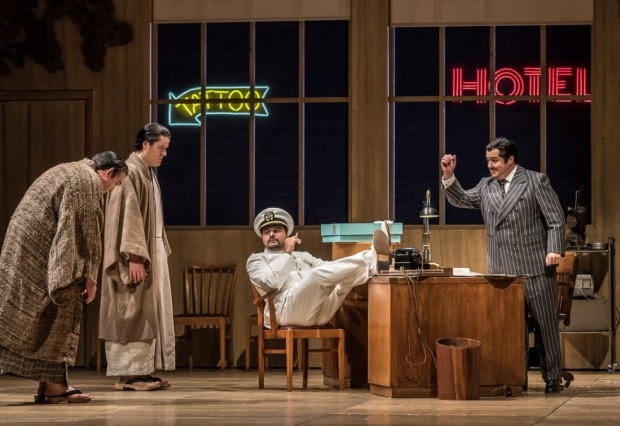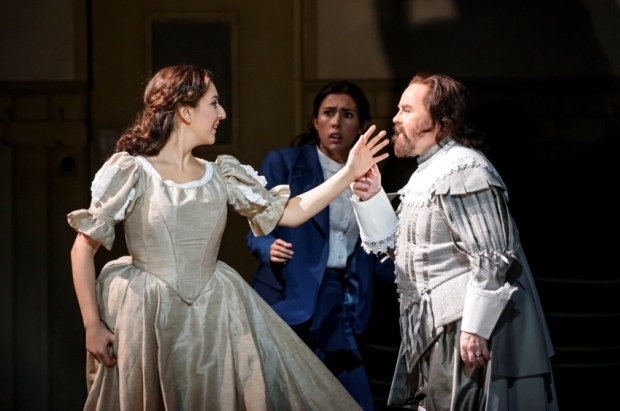Review: Madama Butterfly (Glyndebourne and tour)

© Clive Barda
You can keep your shaggy-haired galacticos, it’s John Wilson I want at the helm of my fantasy orchestra. From Hollywood to Broadway, Elgar to, now, Puccini, the natty Geordie is a master of orchestral texture, fluency and shape. Whenever he raises his baton there’s an ease and an inevitability to the sound he elicits. Count me a fan.
In a canny move, Glyndebourne has engaged Wilson to conduct Madama Butterfly on its autumn tour. It's his debut in serious opera, but you’d never know it from the sweeping yet meticulous account of Puccini’s tragico-romantic score. He knows precisely when to let rip and when, as in supporting the smallish soprano of his leading lady, to rein in the volume.
All good then? Pretty much yes, as far as the ears are concerned. The Korean Karah Son is every inch a Butterfly, a vulnerable presence with a limpid tone and an expressive range. Matteo Lippi, her Pinkerton, has all the Italianate passion and push the role needs, and the ever-fabulous contralto of Claudia Huckle ensures that Suzuki, the maid, all but steals the show.
But oh, the production. Can this be the same Annilese Miskimmon who propelled WNO‘s I puritani to five-star glory last year? Here, with the full weight of another company machine at her disposal, she’s hatched a staging that’s as tatty as it is wrong-headed. It might pass muster on tour—just—but it scarcely deserves to carry the Glyndebourne insignia.
The love duet plays out amid desks and filing cabinets
The main frustration isn’t the director’s random updating to the 1950s but her wilful conceit, in partnership with designer Nicky Shaw, of shifting scenes away from their correct habitats. Puccini and his librettists kept all the action in one place, but Miskimmon has had the wheeze of locating the whole first act inside the cluttered office of Goro’s marriage bureau. This may have gone down well at her initial pitch but in practice it makes a nonsense of both mood and action, especially in Butterfly’s magical first approach, here merely glimpsed through a window. As for the ineffable, 20-minute love duet, when it plays out amid desks and filing cabinets something is lost.
The opera's final scene, when Lt and Mrs Pinkerton return to Nagasaki, is set indoors rather than on the threshold, which has meant engineering the action so that Cio-Cio-San exits her own house and leaves the visitors within. It doesn’t work and should have been ditched at the planning stage.
Most alarming of all is Miskimmon’s stilted, chess-piece direction of her players. And at Glyndebourne of all places, where thorough rehearsal is a proud boast! The acting is primitive, with Adam Marsden (Yamadori) and Francesco Verna (Sharpless) especially exposed, and even the experienced Goro of Alun Rhys-Jenkins struggles to make his mark.
It may be that Miskimmon has seen Anthony Minghella’s excessively gorgeous wallow at ENO and wanted to attempt an antidote. At least she has employed a real boy to play Sorrow. But with so few convincing ideas of her own she should have waved the white ensign long before this half-baked effort hit the stage. I almost missed the puppet.
Madama Butterfly runs in repertory at Glyndebourne until 4 November, then tours to Milton Keynes, Canterbury, Norwich, Woking and Plymouth until 10 December.











